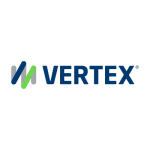With the pandemic highlighting the need for businesses to accelerate their digital transformation efforts, it is clear that relying on manual processes to perform critical business tasks is no longer enough to survive, let alone thrive.
According to the management consulting firm McKinsey: “To stay competitive in this new business and economic environment requires new strategies and practices.” This means recognising the use of more advanced digital tools – and tax technology is no exception.
The tax landscape is highly complex due to ever-changing rules and regulations worldwide. This is becoming even trickier to navigate as tax authorities are catching up fast when it comes to digital reporting requirements.
Take, for example, the Making Tax Digital (MTD) legislation introduced in the UK in 2019. MTD requires VAT-registered businesses to keep and preserve records digitally for up to six years. Businesses must also submit their VAT returns using compatible software that can directly connect to the systems used by the UK revenue authority, HM Revenue and Customs (HMRC).
Therefore, to ensure compliance, it is critical to have technology in place that can help tax teams meet these obligations while also making the overall process more seamless. However, adopting the right tax technology to facilitate this is easier said than done.
Misconceptions about VAT
Many people wrongly assume that the tax processes currently built into enterprise resource planning (ERP) systems can sufficiently manage an organisation’s VAT requirements. But this native ERP tax automation isn’t sophisticated enough to handle the increasing complexities being implemented by tax authorities. Legislation can sometimes be updated with a moment’s notice, and tax and IT teams processing VAT using native functionality within ERP systems will have difficulty responding to these changes.
Consequently, businesses that are still using slow, laborious processes for invoicing, filing, and handling returns run the risk of audit failure. Non-compliance can cost businesses thousands, if not millions, on top of unpaid or overclaimed VAT.
On top of this, tax authorities can impose serious penalties and fines for any inaccuracies spotted or regulations not adhered to. This can potentially ignite a domino effect of other issues such as reputational damage and loss of sales.
Tax digital transformation
To avoid these risks, a best-in-class tax engine that integrates with an ERP and has an in-built data assurance tool is needed to automate the process. This significantly improves audit performance by helping tax professionals when filing real-time e-invoice data and preparing VAT returns. It also reduces the time spent monitoring changes to VAT legislation, by ensuring the correct rates and rules are applied to transactions in real time.
The right solution will also benefit the wider business, especially when it is experiencing rapid growth in digital sales, as compliant indirect tax determination is applied instantaneously, preventing VAT from being disruptive to digital sales growth.
Below is an example of how one of Vertex Inc’s customers put tax technology to the test.
Vertex case study
Like many global businesses, our client was experiencing challenges with indirect tax compliance due to changes in VAT legislation. In addition, the company also decided to move its European finance operations to a shared service centre (SSC). The business needed to find a solution that could upload and transfer data as well as connect all finance functions throughout multiple territories. Therefore, the decision was made to adopt an automated tax engine.
While our client had experience with tax return preparation software, these returns were still prepared in the old-fashioned way (manually). For example, reports were tweaked in spreadsheets and then keyed into a government portal. This was less than ideal.
The business selected a flexible tax engine solution that could be applied across multiple ERP systems and adapted to meet the company’s unique profile. The tax team is now able to handle any type of indirect tax filing across Europe, and processes a tremendous number of VAT returns that need to be delivered within specific timeframes. The company also benefits from leaving updates and technical maintenance to be handled by its solution provider.
In terms of compliance improvements, our client has seen a gradual step away from spreadsheet functionality as raw data can be uploaded directly to the returns software for preparation. Previously, a multitude of custom-made, ad hoc feeds were circulated between departments and then into the SSC. This was certainly not sustainable as tax professionals had to familiarise themselves with each individual spreadsheet, whereas now there is a structured way of preparing VAT returns. Additionally, the inbuilt workflow within the solution ensures deadlines for returns are met on a monthly basis, keeping the company ‘audit-ready’ at all times.
Going forward, the organisation plans to take advantage of the solutions data integrity tool to combine data points and enrich the reporting process. Not only will this help achieve standardisation with a friendly, easier-to-use interface, but it will also be used to create more advanced checks and validation steps. This will add value to the business as it will reduce the risk of errors, simplify reporting, and mean less reliance on IT to make changes to data.
With more tax authorities updating legislation and reporting requirements, investing in tax technology is non-negotiable. By partnering with the right provider, tax teams can start thinking about reducing their reliance on manual processes while improving compliance. This, in turn, benefits the digital transformation ambitions of the wider business.
Find out how Vertex can help you improve your global indirect tax compliance here.












